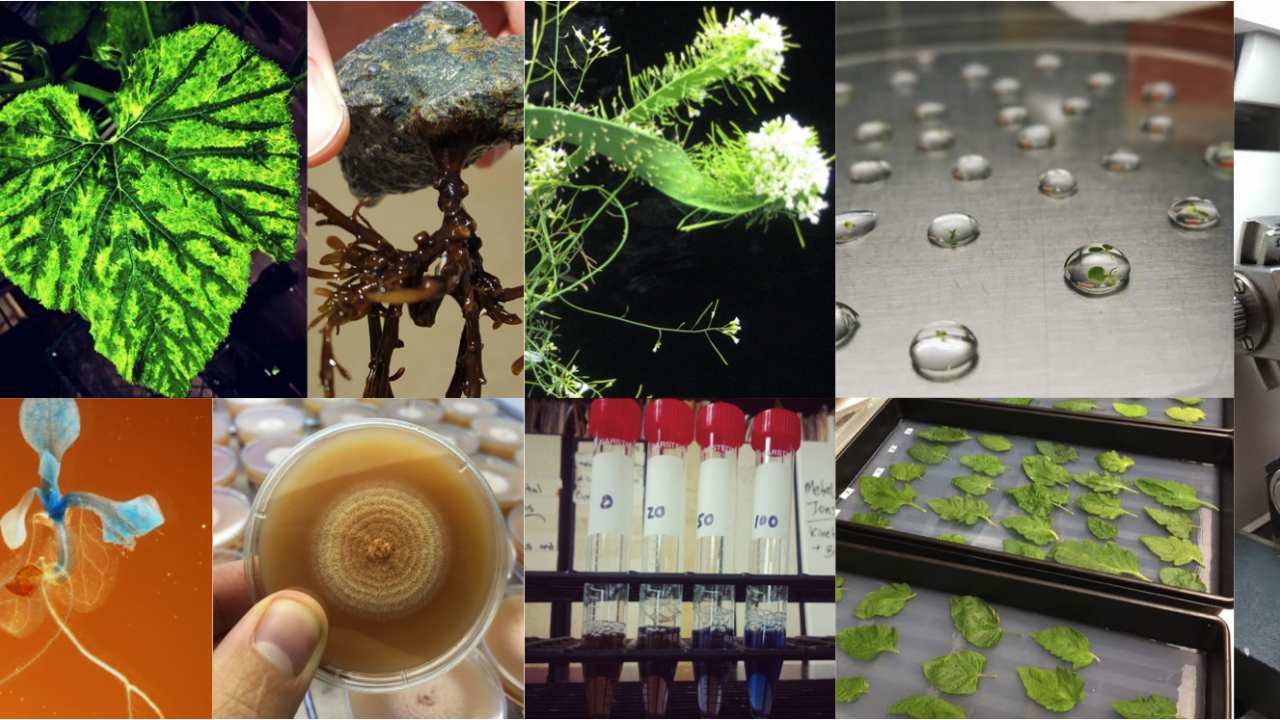
April Newsletter
See below for a Science Says-only offer for a visual science communication course from Picture As Portal (Valid through the end of the month) and an upcoming event on science & art! Read on to find out more, and please share widely with your networks.
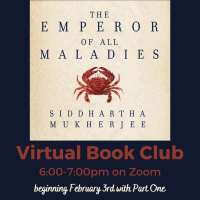
Science Book Club
We're reading The Emperor of All Maladies by Siddhartha Mukherjee for this winter-spring book club. The next meeting is Wednesday April 7th at 6:00pm. To learn more and get on the email list, check out the link below.
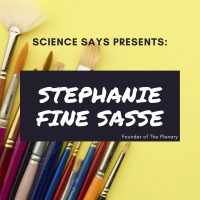
April: Art and Science for Impact
Science Says is hosting Stephanie Fine Sasse, founder of The Plenary, on April 22nd at 5:30pm. Stephanie will be exploring the relationship between art and science, how they serve as complementary forms of inquiry, and ways scientists can leverage the arts/collaborate with artists to drive impact.
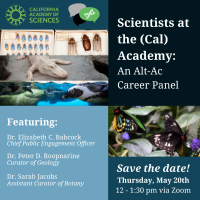
May: California Academy of Science
Science Says is hosting Drs. Peter Roopnarine, Elizabeth Babcock and Sarah Jacobs from the California Academy of Science on May 20th at 12pm to discuss how they brought their academic skills to the museum setting, as well as what they are doing now.
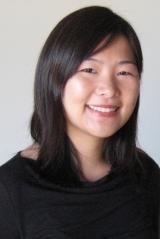
Coming Soon: Dr. Janet Iwasa
Dr. Janet Iwasa is an Assistant Professor in the Biochemistry Department of University of Utah. She specializes in creating accurate scientific illustrations and animations to support research and science communication efforts. Details coming soon.
Sharing SciComm Projects
Do you have a cool science communication project you'd like to share? Are you interested in trying blog writing? Email us at davissciencesays@gmail.com.
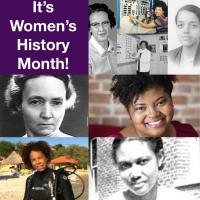
Women's History Month
In March, we celebrated women in science all month long. If you missed the posts on social media, you can read all about the women we highlighted (and a few more!) below.
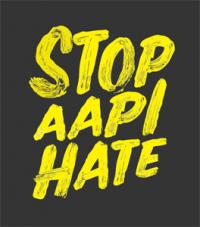
A Statement of Support
In light of the recent attacks on the Asian-American community and increase in anti-Asian xenophobia throughout the pandemic, we felt it was necessary to reassert our commitment to anti-racism and diversity, equity and inclusion efforts.
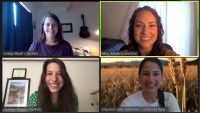
North Bay Science Discovery Day
Discovery Days are free, multi-location grand finales of the Bay Area Science Festivals, and we participated (virtually) this year with a team of scientists leading career panels and general Q&A about science.
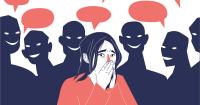
Is the "Love" Hormone Making Us Socially Anxious?
We have all experienced nervousness before a social engagement at some point. As social beings, it is normal human behavior to care about what others think of you. But what happens when you care too much? In her latest article, Heather Mayer explores social anxiety research being conducted at UC Davis in the Trainor Lab.
Resources, Opportunities, and Virtual Events
Let us know if you hear about any resources or opportunities that our group may be interested in! davissciencesays@gmail.com
Volunteer for a "Meet a Scientist" Panel!
Practice your scicomm, build your outreach and tell your science story (or stories about your science)! Science Says meets virtually with classrooms and public science events like North Bay Science Discovery Day to talk about our journeys and answer audience questions.
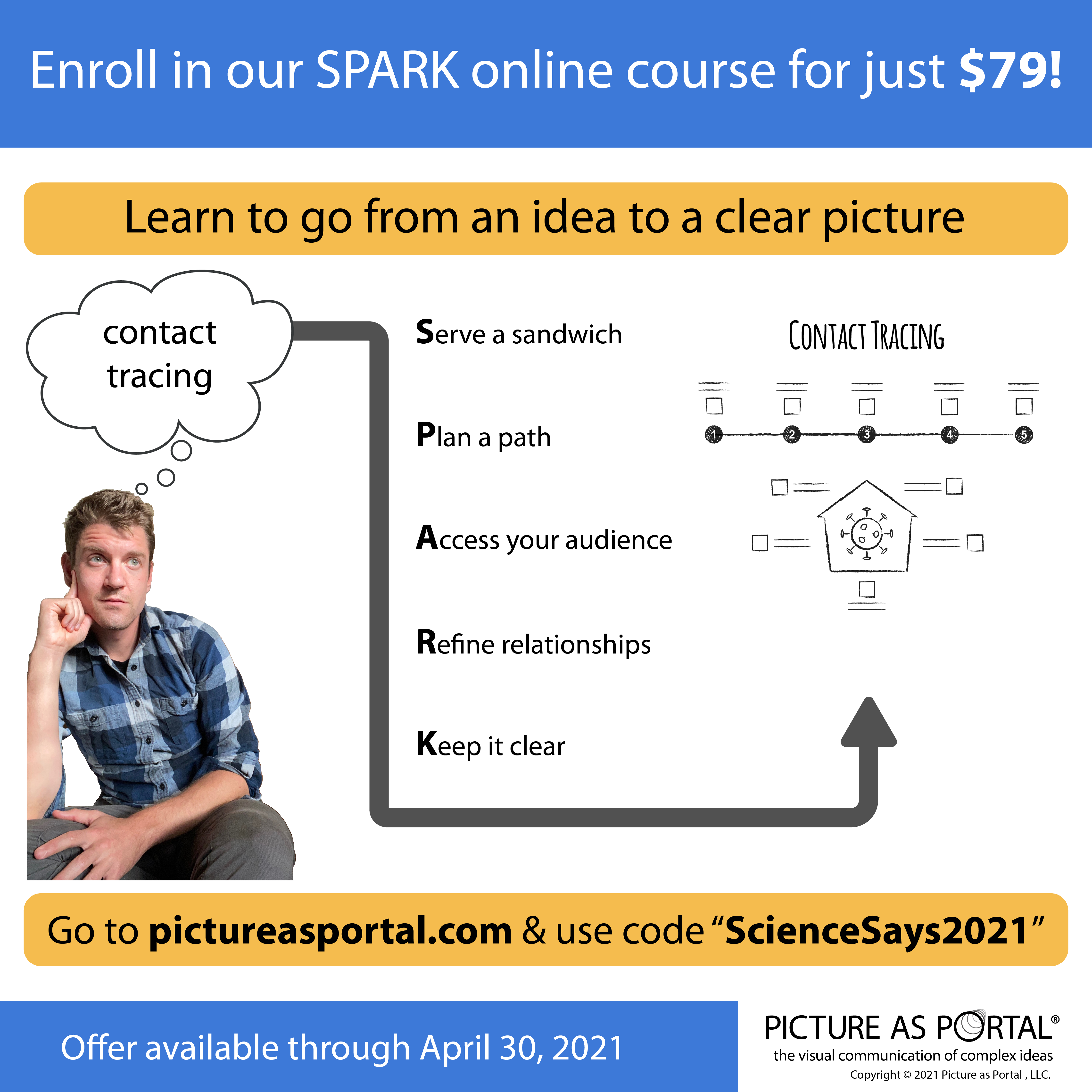
Picture as Portal Visual Science Communication Course
In this course, you’ll learn a sequence of 5 strategies for communicating science in a picture—based on the easy-to-remember acronym S.P.A.R.K. Each letter represents one strategy. You’ll learn exactly how a picture evolves from beginning to end. As you progress through the course, you'll see step-by-step demos of each strategy applied to a case study image.
S.P.A.R.K. is perfect for you if—right now—you’re working on a presentation, a paper, or a project, and find yourself struggling to communicate clearly. Follow S.P.A.R.K.’s step-by-step process, and you will have a picture by the end of the course. And we think you’ll be surprised by what you’re able to accomplish!
You’ll learn core concepts of visual communication that’ll be useful whether you’re an expert or a student, a novice or a pro. This is not a course on how to draw. What you’ll learn can be applied to many different ways of presenting information—such as diagrams, charts, or data visualizations. Your pictures can be drawn by hand, or you can use software you already know.
Science Communication Fellowship Program
The Science Communication Network’s unique Science Communication Fellowship Program is Now Accepting Applications for a 9-month fellowship beginning Sept. 2021.
For early-career green chemistry/engineering and environmental health scientists working at the intersection of environment, health and safer materials. This program is for researchers who want to maximize the impact of their work to benefit public health and the environment, and share their passion for science. The program focuses on the skills necessary for confident and effective engagement with the range of non-scientists - including journalists - researchers will encounter in their careers as they share rapidly evolving environmental health and green chemistry research. Learn more at https://sciencecommunicationnetwork.org/fellows Questions can be sent to julie@sciencecom.org
ComSciCon Conference
The 9th annual ComSciCon Flagship Workshop will take place virtually August 4-7, 2021! ComSciCon provides graduate student attendees with a one-of-a-kind opportunity to meet early career leaders in Science Communication, learn from and interact with a remarkable group of invited experts, and produce an original work communicating complex technical concepts from science and engineering to a new audience.
At ComSciCon's Flagship Workshop, participants build communication skills that scientists and other technical professionals need to express ideas to their peers, experts in other fields, and the general public. Applications for attendance are due Thursday April 15th.
SciPEP Conference
On July 27-28, 2021, SciPEP will convene a FREE virtual conference exploring the unique characteristics of the relationship between the public and basic research, drawing from the experience and expertise of our colleagues in the science and science communication communities. Communicating the Future: Engaging the Public in Basic Science will explore why the public and basic science should be connected and what current communication and engagement efforts are taking place, including the challenges and opportunities in this work. Ultimately, we intend to identify how scientists and professionals can work to engage the public with basic research as effectively as possible.
The conference program will be organized around the exploration of the why, what and how of the relationship between the public and basic science.

Comments